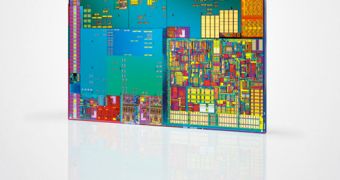Santa Clara, California-based Intel, the world's leading chipmaker, is said to be planning a contract with foundry giant Taiwan Semiconductor Manufacturing Company (TSMC) for the production of the much-anticipated Langwell chipset. This chipset has been designed for the company's Moorestown platform and is meant to be incorporated in the upcoming Mobile Internet Devices (MIDs), taking advantage of TSMC's expertise in the 65nm manufacturing process.
Intel has been promoting its upcoming Moorestown platform for some time now, claiming that the next-generation of Mobile Internet Devices will provide users with enhanced mobile experience, compared to the current generation of MIDs. The platform is scheduled to be launched in the next quarter, featuring a new chip design that incorporates the graphics core and the memory controller on processor die. The Langwell chipset, which is expected to be manufactured by TSMC, will include the NAND and USB control chips, CE-ATA hard-disc interface, MIPI CSI mobile interface, audio code, and wireless network and power management ports.
The chip maker has already landed a design win with consumer electronics maker LG, which is expected to launch the first Moorestown-based MID, scheduled to arrive sometime early next year. The device could run on the equally discussed Moblin 2.0, an Intel-supported project that will provide MID vendors with a choice for a Linux-based operating system. In addition, Intel has also been in talks with Nokia in regard to the company's next-generation MID platform, but the two parties are yet to announce a collaboration that will bring forth the first Intel-based Nokia device.
According to a recent news-article on CENS.com, citing industry watchers, the global demand for Langwell chipsets is expected to rise to five to seven million units by the end of 2010, up from two to three million units at the beginning of next year.

 14 DAY TRIAL //
14 DAY TRIAL //